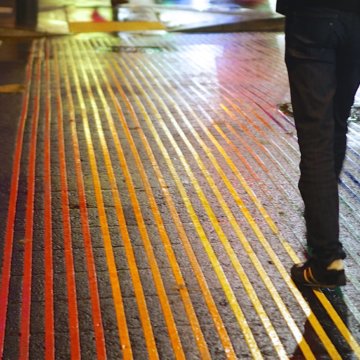- About
- Topics
- Picks
- Audio
- Story
- In-Depth
- Opinion
- News
- Donate
- Signup for our newsletterOur Editors' Best Picks.Send
Read, Debate: Engage.
A collaborative investigation by The Intercept and the International Consortium of Investigative Journalists (ICIJ) has recently revealed that Immigration and Customs Enforcement (ICE) have been detaining migrants in solitary confinement for prolonged periods of time, in defiance of Department of Homeland Security (DHS) regulations.
The isolation of detainees by ICE – including vulnerable individuals, such as people with mental illness, a history of abuse, or disabilities – continues to inflict irreversible trauma on migrants, injures their mental and physical health, and has been connected to several suicides.
In the course of their investigation, The Intercept and ICIJ reviewed more than 8,400 testimonies of migrants held in solitary confinement by ICE, of which more than half were considered vulnerable cases. In about half of the cases reviewed, detainees were held in isolation for more than 15 days, and in others for over six months or a year. The report also introduces hundreds of cases in which the detainees in isolation were regarded as ‘suicidal’, and connects at least 13 cases of suicide to ICE’s solitary confinement practice.
In some cases, ICE declares the reason for isolating migrants to be a measure of protection, or a method of guaranteeing their safety. This applies to victims of trafficking and abuse, LGBTQ detainees, or migrants suffering from any type of disability – be it mental or physical. One Nicaraguan man, for instance, was reportedly put in solitary confinement simply because he uses crutches. In another case, Rivera, a 36-year-old transgender woman from Honduras, was given the choice by ICE between being held with the general population (where she was likely to face severe violence), or remain in solitary confinement. Rivera was held in isolation for weeks before she attempted to commit suicide. After being saved by a passing guard, Rivera was transferred to another department where she was once again being isolated – this time for posing a risk to her own life.
In other cases, ICE appears to use solitary confinement as a punitive measure. This is true in cases where detainees exhibit even the smallest indication of aggression, as well as in cases where detainees simply shared a cup of coffee or engaged in consensual kissing.
The report provides numerous testimonies detailing the enormous damage inflicted upon migrants who are held in isolation – many of whom attempt to take their own lives, experience severe mental breakdowns and bouts of hallucinations, as well as suffer from long-lasting trauma.
The prevalent use of solitary confinement by ICE does not only defy international treaties and laws regarding this practice, but also violates the agency’s own regulations, according to which solitary confinement should be used only as a last resort in extreme cases, after all other options have been carefully considered, and exclude vulnerable individuals and those suffering from mental illness.
ICE, as well as contractors it collaborates with, have repeatedly defended their use of solitary confinement, attempted to block reports about their policy from being published, and has failed on various occasion to provide accurate statistics regarding how many migrants are held in isolation and what other solutions they attempted to find before opting for solitary confinement.
It seems that only consistent public attention could place sufficient pressure on government officials and lawmakers to bring this inhumane policy to an end. And seeing as a momentum is being built in this regard, with more and more Americans expressing their resentment towards ICE and its practices, it is important to keep the flame alive and bring as many testimonies as possible to the surface.
Photo: Ted Eytan, flickr

